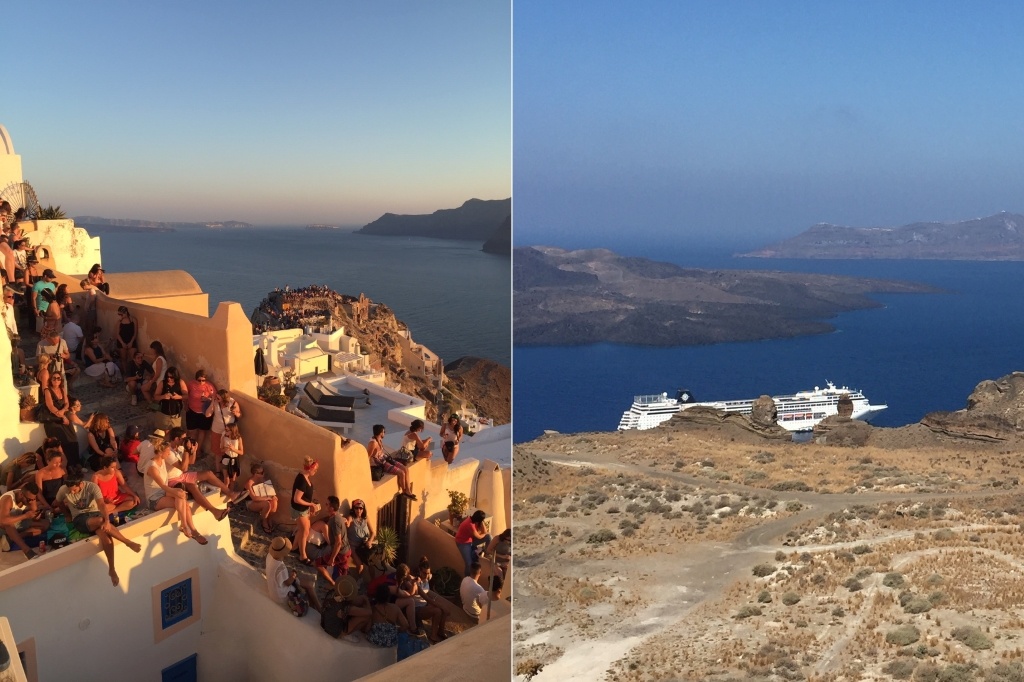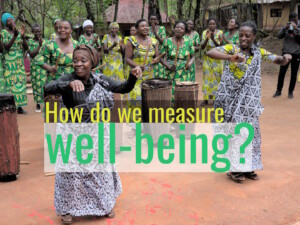Towards a new paradigm for regenerative tourism and just futures

The COVID-induced travel & tourism depression has caused and exacerbated suffering. In this “Good Tourism” Insight, academic Tazim Jamal summarises the opportunities that she sees for ‘healing’, ‘justice’, and ‘equity’ as our industry recovers.
[Thanks to Joseph M Cheer for inviting Dr Jamal to write a “GT” Insight.]
Tourism is a multi-billion-dollar industry. It employs more than 100 million people directly and generates about 10% of global GDP. International arrivals grew by 7% in 2017 to 1.32 billion visitors, 6% to 1.4 billion in 2018, and 4% in 2019 to reach 1.5 billion, according to the World Tourism Barometer. But the world changed and mobilities decelerated after March 11, 2020 when the COVID-19 pandemic was declared by the World Health Organization. International travel (overnight visitors) plunged by 70% in the first eight months of 2020.
The pandemic has reminded us of our common humanity and our societal vulnerabilities, revealing lack of coordination and regulation of the global tourism industry as well as deep inequalities, lack of decent wages, and little social support for high-risk groups. Historical injustices against oppressed and minority groups subject to systemic racism often stemming from colonialism and imperialism have risen in public consciousness, fuelling worldwide social movements inspired by the Black Lives Matter protests last year.
The pandemic has also exacerbated the adversities faced by migrants and refugees seeking safety and sustainable livelihoods, while extreme global poverty is estimated to have risen by 150 million people.
From a pre-COVID world of ‘overtourism’ and the rapid movement of goods, finance, workers, and tourists across borders, COVID-related lockdowns and shelter-in-place directives have shaken old habits, while rapid technological advances and innovations have introduced new patterns of online work and virtual leisure. This screeching brake on our easily taken-for-granted freedom of movement has fortunately opened up a space to envision a more just and equitable world as the tourism industry grapples with new normal and the meaning of safe travel.

Hope arises as vaccines arrive, but tourism service providers across the world recognise that new values must arise too. Old modernist notions of progress that focus primarily on numbers, e.g, measuring success in terms of visitor numbers and economic growth, are clearly unsustainable. Rather than business-as-usual and mass tourism overwhelming places, responsible practitioners are keying into a new paradigm of degrowth and regenerative tourism that focuses on sustainability and resilience, individual and communal well-being grounded in a new paradigm of justice, ethics, and care for human and non-human others.
Opportunities for structural change arise for destinations as they embark on green, resilient, and inclusive development that contributes to health and quality of life. These include re-tooling (greening) transportation, construction, and air travel, and providing for just transitions through job re-training, education, and social support as needed.
Also see Larry Dwyer’s “GT” Insight
“Tourism & hosts’ well-being: Moving beyond GDP towards a better life”
Innovation, coordination, and proactive planning are evident among various policy responses for good governance during this transition. The European Commission, for instance, aims to work with Member States “to promote sustainable tourism in line with the European Green Deal and encourage a digital transformation of tourism services to offer more choice, better allocation of resources and new ways of managing travel and tourist flows”.
Destinations dependent on international travellers are also re-thinking their marketing plans, e.g., developing domestic visitor strategies as well as attracting regional travellers. Digital marketing and disruptive technologies offer new directions for transformation of the service sector, including contactless hospitality services, and new ways to co-create the visitor experience, aided by ‘smart tourism’.
Also see Hayley Stainton’s “GT” Insight
“How virtual tourism can make travel & tourism more sustainable”
Amid disrupted supply and demand chains lies hope for regenerative tourism in a (post-)pandemic world. Changes in visitor behaviours and desires in a post-COVID world will also be needed. Travellers have a responsibility to be well-informed about their destination and recognise that they can place an undue burden on vulnerable places (and their first responders), as well as on the front-line service providers and residents who offer them hospitality.
In a (post-)pandemic world, destinations will welcome visitors that exercise responsibility, respect, and care to ensure that the joys, benefits, and costs of tourism are shared equitably among residents and visitors, sustaining fair wages and livelihoods, enabling equal dignity and equal self-worth, resilient communities, and flourishing ecosystems. Attracting well-informed ‘cosmopolitan’ visitors corresponds well with democratising tourism through community-based (community-driven), collaborative tourism development and visitor involvement in designing and co-creating mutually beneficial products, services, and experiences.
Also see Bronwyn Hutchison’s “GT” Insight
“How New Zealand’s Tiaki Promise advances regenerative tourism”
Moving forward, regenerative tourism should also be envisioned as restorative tourism, as places of tourism are also spaces for healing troubled pasts and present conflicts, and restoring ecological health. Of crucial importance here is including diverse worldviews and knowledge systems, such as traditional knowledge, local knowledge, scientific and technical knowledge, in biodiversity conservation, food security (consider traditional knowledge for regenerative agriculture), as well as environmental and social justice (including self-determination, autonomy, food sovereignty, cultural survival, and heritage conservation, etc.).
Santafe-Troncoso and Loring’s 2021 study of Kichwa and non-Kichwa Indigenous communities on the “Chakra Route” (Cacao Route) in Ecuador shows how Kichwa women farmers, also known as Chakra Mamas, draw on traditional knowledge passed down over generations to practice agro-forestry, cultivating and managing chakra gardens using agro-ecological practices. The gardens are not only a secure source of diverse foods but are also restorative and healing. As the authors put it, chakra are a “platform for agency, building community, teaching traditional knowledge, expressing cultural identity, empowering women, stewarding the environment, and maintaining spiritual wellness”. The study shows that there is a rich spiritual and ancestral relationship between the women, chakra, Kichwa culture, and environmental stewardship.
Also see Kristin Dunne’s “GT” Insight
“Planning tourism with purpose & love in New Zealand’s Bay of Plenty”
Good tourism, as I discuss in Justice and Ethics in Tourism (2019), builds on principles of justice and equity. It recognises, represents, and includes diverse, disadvantaged, and marginalised groups, and facilitates human rights and lives of dignity and self-worth. It calls for a new posthumanist tourism paradigm with a non-anthropocentric, non-dualist perspective, in other words, a relational ethic that brings humans and non-human others into ethical and affirmative relationships towards just and sustainable futures.
So, will it be business as usual? Or will we take this opportunity to focus on regenerative tourism and the potential for tourism to facilitate healing, empathy, and care for this fragile planet and all who inhabit it?
What do you think? Share a short anecdote or comment below. Or write a deeper “GT” Insight. The “Good Tourism” Blog welcomes diversity of opinion and perspective about travel & tourism because travel & tourism is everyone’s business.
Featured image (top of post): Regeneration. Image by congerdesign (CC0) via Pixabay.
About the author

Tazim Jamal is a professor of Recreation, Park & Tourism Sciences at Texas A&M University, USA. Google Scholar profile.





